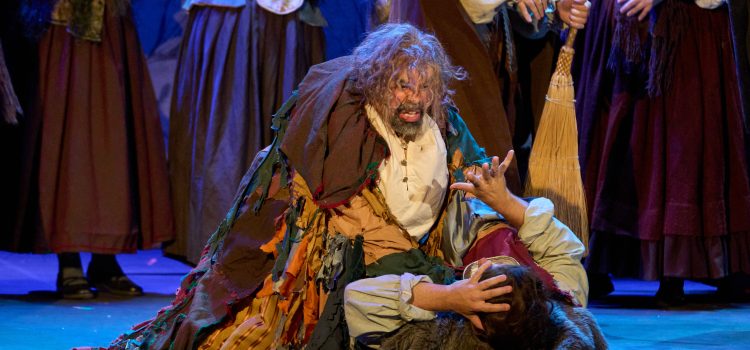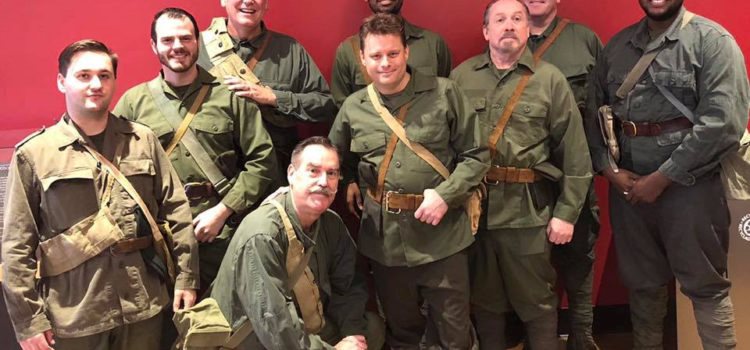By CB Adams
There’s a moment in the “classic” 1989 movie “Fletch Lives” when Chevy Chase as Fletch says it takes a big man to admit when he is wrong. To which he adds, “I am NOT a big man.” It takes the comedic instincts and delivery of Chase to get laughs from that line, and it takes baritone Robert Mellon as the title character in Union Avenue Opera’s production of Giuseppe Verdi’s “Falstaff” to elicit that reaction for 2 ½ hours of witty, plus-sized, boozy merriment.
Mellon has big shoes to fill as Falstaff, a beloved barfly who appears in four plays by William Shakespeare (if you count the one in which he is eulogized). Plumped up in a hunchbacked fat suit, Mellon fills his Falstaff as a big man (literally) who gets big laughs while working his wiles with the merry wives of Windsor and their various and sundry significant others. As one of the “holy trinity” of comic operas, “Falstaff” may reside with the likes of “The Marriage of Figaro” and “The Master-Singers of Nuremberg,” but it’s Mellon and the rest of the cast who make this production flat-out fun.
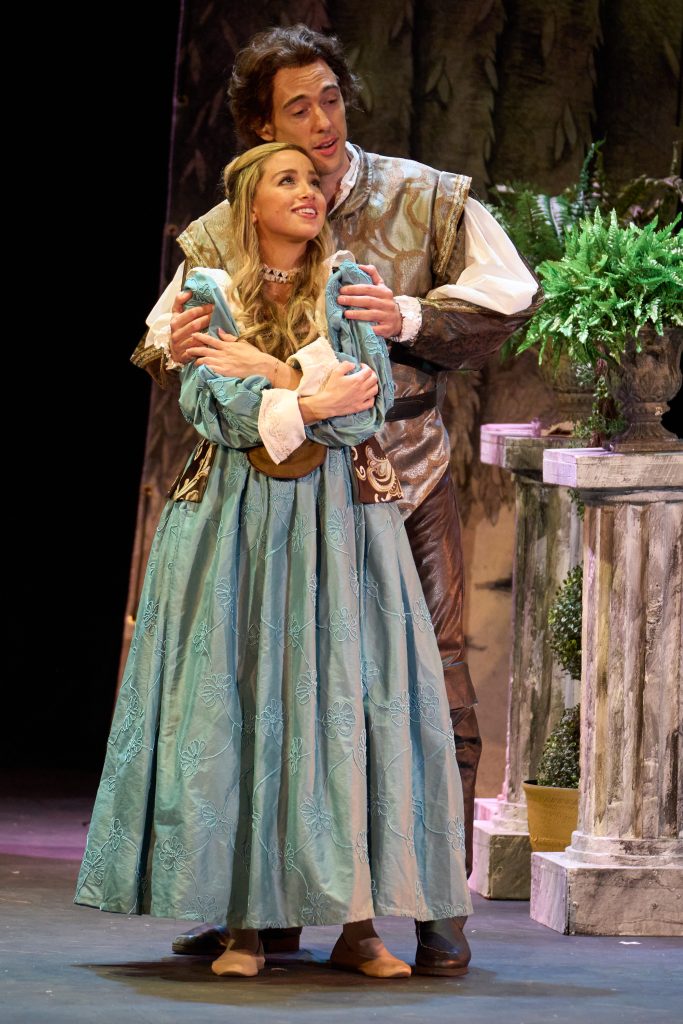
This may be Falstaff’s show, but he, like Mellon, needs comedic foils who provide equal helpings of wit and charm, and this production has them. “Falstaff” is a concentrated opera without long arias, but with melodies that practically fly by. That’s well-suited to the talents of Marc Schapman and Mark Freiman as Falstaff’s scheming henchmen, Bardolfo and Pistola, respectively, who bounce off each other amusingly. As does Anthony Heinemann as Dr. Caius and Jacob Lassetter as Ford.
Also up to Falstaff’s formidable foibles is the trifecta of Karen Kanakis, who sings Mrs. Alice Ford, Melody Wilson as Mrs. Meg Page and Janara Kellerman as Dame Mistress Quickly. This triumvirate were delightful – individually and collectively – as they work to counter Falstaff’s schemes with a refreshing equality of the sexes. A subplot involves the young lovers, Nannetta and Fenton, and their best scene concludes Act I. As sung by soprano Brooklyn Snow and tenor Jesse Darden, it’s one of the opera’s best moments.
Under the baton of conductor Stephen Hargreaves, the music of Verdi’s final opera and only second comedy is frothy, splendid and connects deeply with the performers. Teresa Doggett’s costumes were not only tailored for the overall period of the opera, they also elevated the visual presence of each character.
The stage at Union Avenue Christian Church poses certain creative challenges, but its modest size is well-suited to this opera. Scenic designer Lex Van Blommestein makes maximum use of the stage by going “old school” and using cloth panels to set the scenes, including Falstaff’s favorite haunt, the Garter Inn. Under the direction of stage manager Megan-Marie Cahill, the crew openly raise and lower the panels, replete with squeaky pulleys. As the crew elevated the panels for the final act (during the July 30th performance), set in a forest, they created the impressive spread of a massive oak tree. It’s not often that a scene change elicits ooo’s, ahh’s and applause.
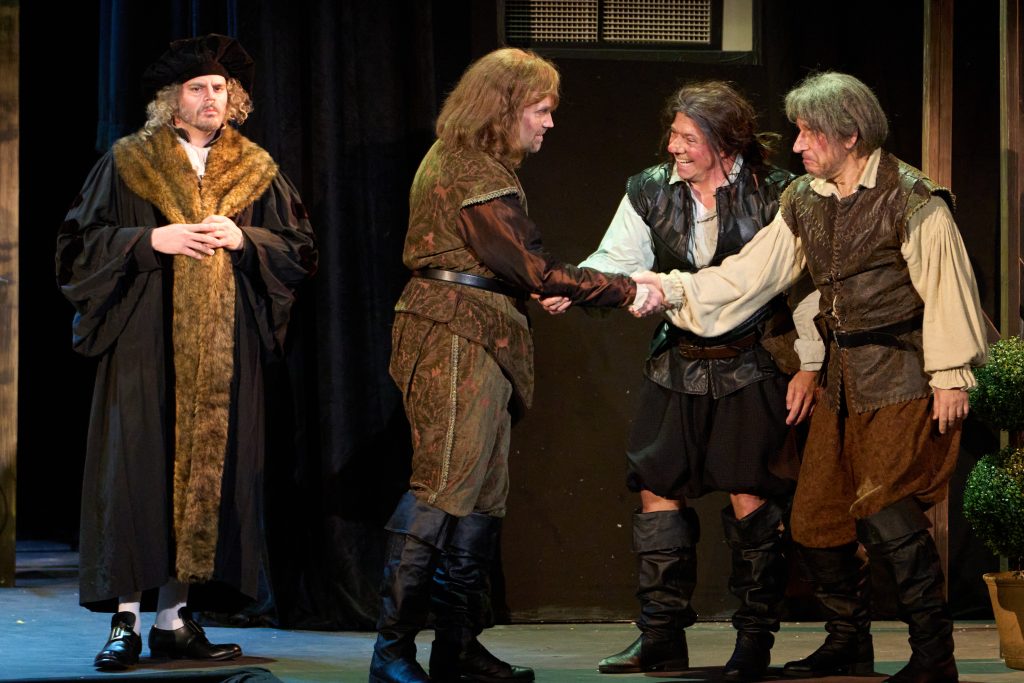
So, loosen your belt – or sash or waistline – and prepare to be served an effervescent treat ala Verdi, Shakespeare and Union Avenue Opera.
Union Avenue Opera Union presents “Falstaff” July 29 and 30 and August 5, 6 at 8 p.m. at Union Avenue Christian Church. For more information, visit www.unionavenueopera.org
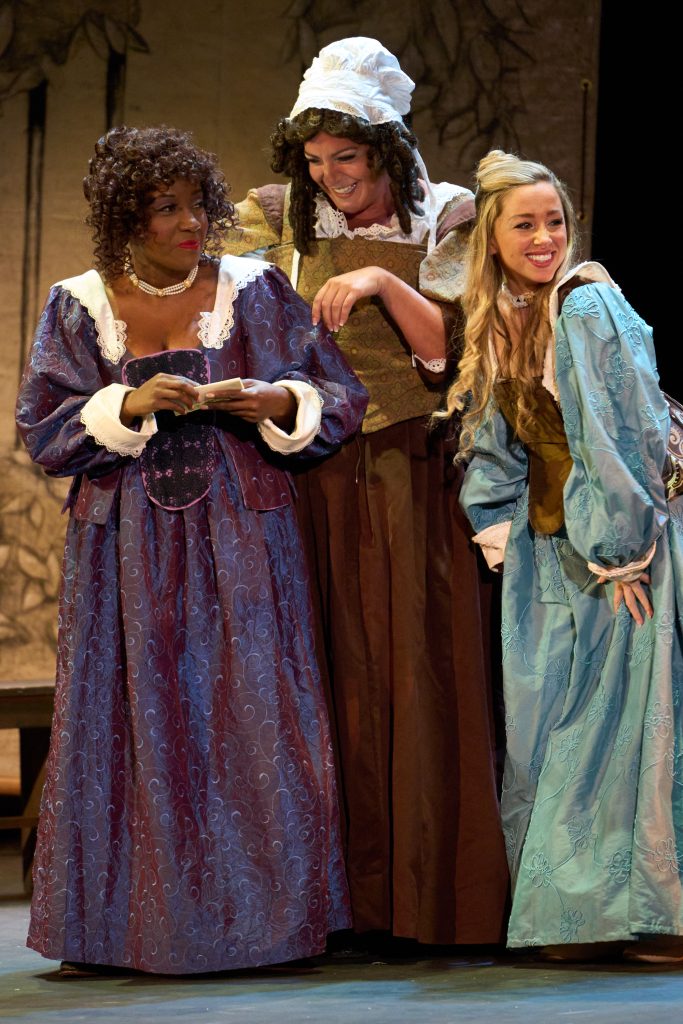

CB Adams is an award-winning fiction writer and photographer based in the Greater St. Louis area. A former music/arts editor and feature writer for the St. Louis Globe-Democrat, his non-fiction has been published in local, regional and national publications. His literary short stories have been published in more than a dozen literary journals and his fine art photography has been exhibited in more than 40 galley shows nationwide. Adams is the recipient of the Missouri Arts Council’s highest writing awards: the Writers’ Biennial and Missouri Writing!. The Riverfront Times named him, “St. Louis’ Most Under-Appreciated Writer” in 1996.

